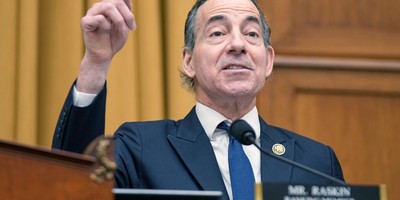A funny thing happened on the way to the election: Many Americans had a change of heart about the war in Iraq. No, I'm not talking about the large numbers of Americans who now think that the United States should never have gone to war in the first place, or those who want the troops brought home immediately. To the contrary, two recent Pew Research Center polls show that Americans are more upbeat in their assessment of the Iraq War than at any time in the last couple of years and less focused on American casualties there. Responses to a number of the surveys' questions suggest problems ahead for the Democrats, no matter which candidate the party nominates.
The findings from the nonpartisan Pew Research Center come from two separate surveys, one on the presidential election and another on the public awareness of various public policy and political issues. In the first survey of 1,508 Americans taken over four days in late February, Pew asked respondents a variety of questions about their attitudes toward the presidential candidates and various issues in the campaign, including several questions on Iraq, Afghanistan and the war on terror. The second survey on awareness of issues included 1,003 adults and was taken Feb. 28-March 2.
What emerged was a complicated picture of American attitudes, but one that should give some solace to Republican candidate Sen. John McCain.
While about equal numbers of Americans believe U.S. troops should remain in Iraq (47 percent) as want troops withdrawn (49 percent), the shift in public opinion over the last year has been toward keeping troops there -- up 5 percent since February 2007 and 8 points since September 2007. And barely 14 percent favor Democratic candidate Sen. Barack Obama's position, removing all troops immediately.
More importantly, a rapidly growing number of Americans believe the military effort in Iraq is going well -- 48 percent compared with only 30 percent a year ago. And a majority now believes that the U.S. will succeed in Iraq, 53 percent compared with 42 percent last September.
Recommended
Barely more than a quarter of respondents could correctly identify the number of Americans killed in Iraq -- almost 4,000 combat fatalities since the war's inception -- the lowest percentage that could do so since Pew began asking this question in April 2004. Although the reasons for this decline in awareness might be debatable, at least part of the reason is that fewer Americans have been killed in recent months (about the same number as in 2004), which has taken the war's toll off the front pages of most newspapers.
The Democrats' strategy to take back the White House has been focused largely on the war in Iraq. Both Obama and his rival, Sen. Hillary Clinton, have been vying with each other for months over who could claim to be the most anti-war candidate (though the prize clearly belongs to Obama). But the American public may not be ready to cut and run so quickly. And dissatisfaction with Iraq is not turning into the key to winning the election in November that Democrats thought it would be.
A lot could happen between now and Election Day; but as the situation currently stands, it does not appear that Democrats have the edge on Iraq. McCain, whose support for the war has never wavered, has always maintained he'd rather lose the election than betray his principles on this issue. Now, it seems, he may not have to worry that his positions will cost him the election.
The bigger worry for McCain -- indeed all Republicans -- is a souring economy. Although presidents have little control over the economy -- which at about $14 trillion is too large for any one person or institution to exert much influence -- voters often blame the party in power for whatever goes wrong. Come November, voters will be less interested in figuring out which candidate will bring the troops home than in picking the candidate who can jumpstart the economy.

























Join the conversation as a VIP Member